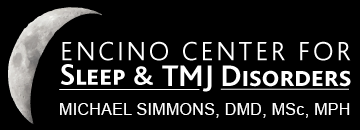Sleep Hygiene 101: Tips for Establishing Healthy Sleep Habits

Getting enough quality sleep is crucial for our health and well-being. Poor sleep habits can lead to fatigue, irritability, poor concentration, and even serious health issues. Practicing good sleep hygiene can help you establish a consistent and rejuvenating sleep routine, ensuring you wake up feeling refreshed and energized each day.
Getting enough quality sleep is crucial for our health and well-being. Poor sleep habits can lead to fatigue, irritability, poor concentration, and even serious health issues. Practicing good sleep hygiene can help you establish a consistent and rejuvenating sleep routine, ensuring you wake up feeling refreshed and energized each day.
Understanding Sleep Cycles and Needs
Our sleep is divided into two main cycles: Rapid Eye Movement (REM) and non-REM sleep. During REM sleep, our brain is highly active, and this is the stage where we experience vivid dreams. Non-REM sleep consists of three stages, ranging from light sleep to deep, restorative sleep.
The recommended sleep duration varies by age group. Most adults require 7-9 hours of sleep per night, while school-aged children and teenagers may need up to 10 hours of sleep.
Creating a Sleep-Friendly Environment
Your bedroom environment can significantly impact the quality of your sleep. Aim for a cool, dark, and quiet space that promotes relaxation.
- Temperature: Maintain a comfortable temperature between 65-70°F (18-21°C).
- Lighting: Minimize exposure to bright lights and use blackout curtains or an eye mask to create a dark sleeping environment.
- Noise Control: Reduce external noise by using earplugs or a white noise machine.
- Comfortable Bedding: Invest in a high-quality mattress, pillows, and breathable sheets that support proper spinal alignment and temperature regulation.
Establish a relaxing bedtime routine to signal your body it’s time to wind down. This could include taking a warm bath, reading a book, practicing gentle stretches, or engaging in relaxation techniques like deep breathing or meditation.
Developing Healthy Sleep Habits
Maintain a consistent sleep-wake schedule: Stick to a regular sleep and wake-up time, even on weekends, to regulate your body’s internal clock.
Manage exposure to blue light: Limit the use of electronic devices like smartphones, tablets, and computers at least an hour before bedtime, as the blue light emitted can suppress melatonin production and disrupt sleep.
Avoid stimulants close to bedtime: Caffeine, nicotine, and large meals can interfere with your ability to fall and stay asleep.
Exercise and sleep: Regular physical activity during the day can promote better sleep at night, but avoid intense workouts close to bedtime.
Limit naps: While short power naps can be beneficial, long or frequent naps can disrupt your sleep cycle and make it harder to fall asleep at night.
Avoid sleep disruptors: Consumption of alcohol, caffeine, and nicotine close to bedtime can negatively impact sleep quality.
Addressing Sleep Difficulties
If you’re struggling with insomnia, try relaxation techniques like deep breathing, progressive muscle relaxation, or visualization. Establish a calming pre-bed routine and create a sleep-friendly environment.
If you suspect you may have a sleep disorder such as sleep apnea or restless leg syndrome, consult a healthcare professional for proper diagnosis and treatment.
Benefits of Good Sleep Hygiene
Prioritizing good sleep hygiene can have numerous benefits:
Improved focus and productivity: Adequate sleep enhances cognitive function, concentration, and productivity.
Better mood and emotional well-being: Sufficient sleep can improve mood, reduce stress and anxiety levels, and promote emotional stability.
Reduced risk of health issues: Quality sleep is linked to a lower risk of obesity, diabetes, cardiovascular disease, and other chronic health conditions.
Establishing healthy sleep habits through good sleep hygiene is essential for well-being. By creating a sleep-friendly environment, developing consistent routines, and addressing any sleep difficulties, you can improve the quality of your sleep and reap the numerous benefits it offers. Make sleep a priority and prioritize your sleep hygiene for a healthier, more energized life.
Additional Resources
- “Why We Sleep” by Matthew Walker – a comprehensive book on the science of sleep and its impact on health.
- The National Sleep Foundation website (www.sleepfoundation.org) – a reliable source for sleep information and resources.
- Sleep tracking apps like Sleep Cycle or Pillow can help monitor your sleep patterns and provide insights for improving your sleep hygiene.
Remember, consistency is key when it comes to establishing healthy sleep habits. With dedication and patience, you can achieve the restful, rejuvenating sleep you deserve.
Don’t Let Sleep Issues Persist – Contact the Professionals!
If you’re struggling with persistent sleep issues or suspect you may have an underlying sleep disorder, it’s crucial to seek professional help. Dr. Michael Simmons at the Encino Center for Sleep & TMJ Disorders (818-300-0070) specializes in diagnosing and treating a wide range of sleep-related conditions. Don’t let poor sleep continue to impact your health and well-being – take the first step towards better sleep today.
